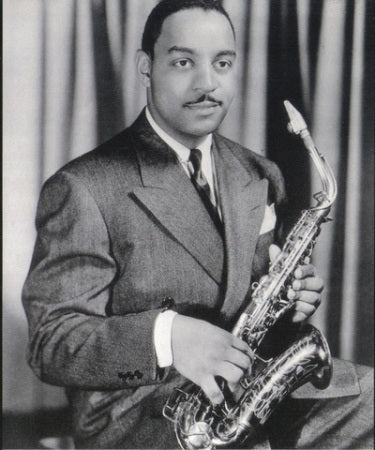Benny Carter

Born in New York in 1907, Benny Carter received his first music lessons on the piano from his mother. He then studied the trumpet on his own and took up the C-Melody saxophone before adopting the alto. He began his career at the age of 15 playing in Harlem bars as a sideman with some of the best bands in New York.
Benny Carter made his first record in 1927 with Charlie Johnson's Paradise Ten. In 1930 he joined Fletcher Henderson's band as an arranger. He then briefly took over the management of the Cotton Pickers before leading his own big band (1932-1934). Considered one of the best jazz altists, he also made some sumptuous recordings on trumpet during this period.
He was invited to play in Paris in 1935 with Willie Lewis's orchestra, then in London where he was arranger for the BBC dance band (1936-1938). He spent several years travelling around Europe, playing and recording with the continent's best jazzmen as well as American stars such as Coleman Hawkins.
On his return to the United States in 1938, he continued to be in demand as an arranger (working for Benny Goodman, Count Basie, Duke Ellington, Glenn Miller, Tommy Dorsey...). He also played with bebop pioneers Dizzy Gillespie and Kenny Clarke, and later led a group that included Miles Davis, J. J. Johnson and Max Roach. In the 1940s, Benny Carter turned to studio work; he wrote for dozens of feature films and television productions and provided arrangements for many popular singers (Billie Holiday, Ella Fitzgerald, Sarah Vaughan, Ray Charles, Peggy Lee, Louis Armstrong, Billy Eckstine...). In parallel, he played thhe alto with the famous Jazz at the Philharmonic and participated in some of Norman Granz's albums.
Benny Carter continued to play and record until the late 1990s, while devoting himself to education from the 1970s onwards. In 1987 he received a Grammy Lifetime Achievement Award from the National Academy of Recording Arts and Sciences.
Benny Carter, who died in 2003 at the age of 95, is considered one of the most remarkable alto saxophonists in history.